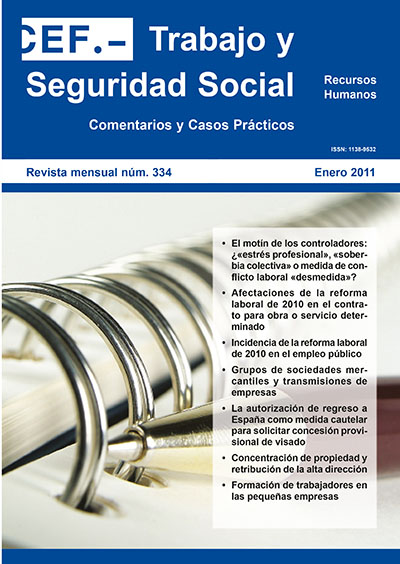The mutiny of air traffic controllers: professional stress, pride clase o measure of labor dispute excessive?
(Comentario a propósito del RD-L 13/2010, de 3 de diciembre)
DOI:
https://doi.org/10.51302/rtss.2011.5207Keywords:
working time, collective bargaining, trade unions, a state of alarm, constitutional order, air traffic controllersAbstract
This paper discusses changes in working time arrangements for «air traffic controllers» in Spain which are the basis of the «wildcat strike» carried out by this group on December 3, 2010. It also examines in detail the answer given by the Government in this concerted action of the drivers, through the declaration of a «state of alarm», what happens first in the still young history of our Democracy. To this end, we study in detail the whole sequence of standards produced in 2010, with particular attention to the Royal Decree 1001/2010 and Royal Decree Act 13/2010, as well as the laws that state and extend the state of alarm. The author criticizes both the excessive use of power by pressure of work of drivers, organized under the old forms of the most ancient «labor aristocracy» and hold a set of professional privileges now untenable, as the authoritarian model of regulation and management designed and implemented by the Government. In both cases we would see the breakdown of constitutional order good labor relations, and therefore proposes an immediate course correction.


















